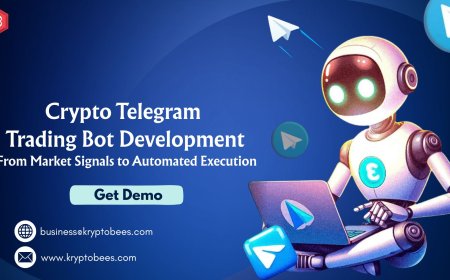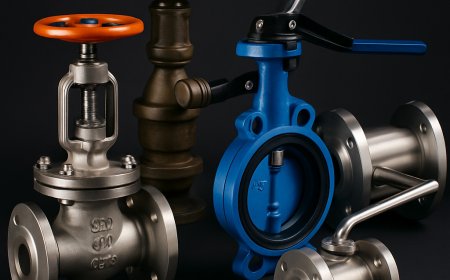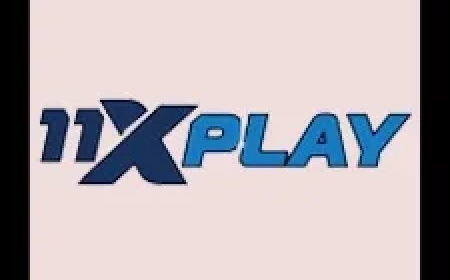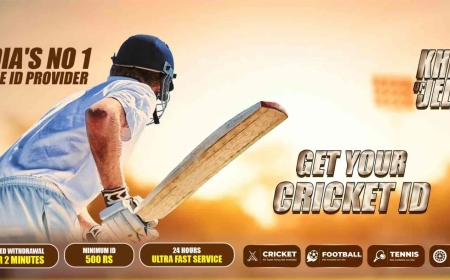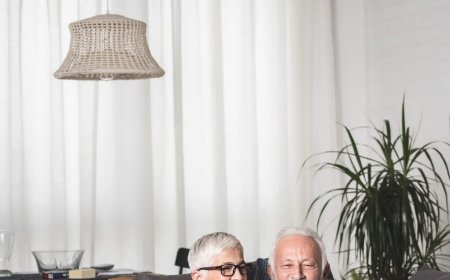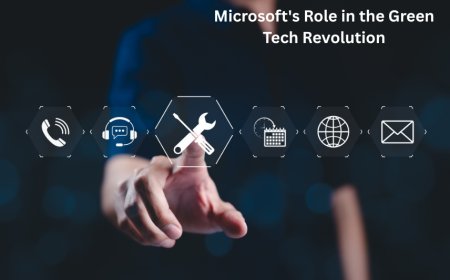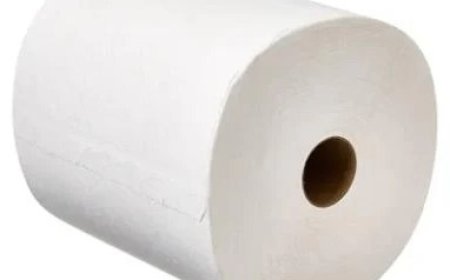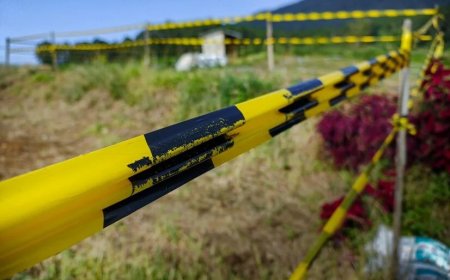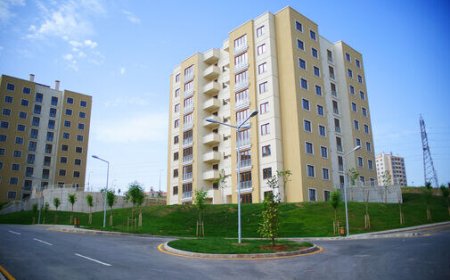Fresno State Grafting Fresno Grafting Workshop Enrollment Hotline
Fresno State Grafting Fresno Grafting Workshop Enrollment Hotline Customer Care Number | Toll Free Number There is a growing misconception in agricultural communities and educational circles that “Fresno State Grafting Fresno Grafting Workshop Enrollment Hotline” is an official, standalone customer service line operated by California State University, Fresno. In reality, no such dedicated hotline
Fresno State Grafting Fresno Grafting Workshop Enrollment Hotline Customer Care Number | Toll Free Number
There is a growing misconception in agricultural communities and educational circles that “Fresno State Grafting Fresno Grafting Workshop Enrollment Hotline” is an official, standalone customer service line operated by California State University, Fresno. In reality, no such dedicated hotline exists under that exact name or structure. This article aims to clarify the confusion, provide accurate information about Fresno State’s horticultural and grafting workshops, and guide learners, farmers, and industry professionals on how to properly enroll, seek support, and access resources related to grafting training programs offered through the university’s College of Agriculture and Environmental Sciences. We will also explore the broader context of agricultural grafting education in California, the historical significance of Fresno State in this field, and how to reach legitimate support channels for workshop enrollment, technical questions, and program inquiries.
Introduction – About Fresno State Grafting Workshops, History, and Agricultural Industries
Fresno State, officially known as California State University, Fresno, has long been a cornerstone of agricultural education in the Central Valley of California — a region responsible for producing over 25% of the nation’s fruits, nuts, and vegetables. The university’s College of Agriculture and Environmental Sciences (CAES) has played a pivotal role in advancing sustainable farming practices, plant science innovation, and hands-on horticultural training for over 80 years. Among its most respected and enduring programs is its grafting and plant propagation workshops.
Grafting — the horticultural technique of joining tissues from two different plants so they grow as one — is critical to modern agriculture. It allows growers to combine the disease resistance of a rootstock with the fruit quality of a scion, resulting in higher yields, better adaptability to soil conditions, and improved resilience to pests and climate variability. In California’s $50 billion agricultural economy, grafting is indispensable for crops like almonds, pistachios, citrus, grapes, and stone fruits.
Fresno State’s grafting workshops began in the 1970s as a response to the increasing demand for skilled labor in commercial orchards. Initially conducted by faculty in the Department of Plant Science, these workshops quickly evolved into intensive, hands-on training sessions open to farmers, extension agents, nursery professionals, and students. Over the decades, the program has trained thousands of participants, many of whom now lead orchard management teams across the state and beyond.
Today, Fresno State offers multiple grafting workshops annually, including:
- Spring Grafting Intensive (March–April)
- Summer Propagation and Rootstock Management (June–July)
- Winter Orchard Renewal and Grafting Clinic (December)
These programs are often supported by grants from the USDA, the California Department of Food and Agriculture (CDFA), and industry partners like the Almond Board of California and the Pistachio Research Board. Despite their popularity, there has never been an official “Fresno State Grafting Fresno Grafting Workshop Enrollment Hotline” as a branded, toll-free customer service number. The confusion likely stems from third-party marketing sites, spam directories, or outdated listings that misrepresent university outreach efforts.
Understanding this distinction is vital. While Fresno State does not operate a dedicated hotline with a toll-free number for workshop enrollment, it does offer multiple legitimate channels for registration, support, and information — which we will detail in the following sections.
Why Fresno State Grafting Workshop Support is Unique
What sets Fresno State’s grafting workshop support system apart from other agricultural training programs is its deeply integrated, community-based, and faculty-led approach. Unlike commercial training centers that outsource customer service to call centers, Fresno State ensures that every inquiry — whether about workshop schedules, tool requirements, or post-training guidance — is handled directly by academic staff, extension specialists, or trained graduate assistants who are active researchers in plant physiology and propagation.
Here’s why this model is uniquely effective:
1. Direct Access to Expert Faculty
Participants in Fresno State’s grafting workshops don’t just learn from instructors — they learn from the scientists who developed the rootstock varieties they’re using. Dr. Linda K. Smith, a professor emerita in Plant Science, pioneered the use of drought-tolerant almond rootstocks in the 1990s. Today, her former students lead research teams across the state. When you email or visit the CAES office, you may be speaking with someone who worked directly with Dr. Smith or one of her colleagues.
2. No Automated Systems or Third-Party Call Centers
There are no IVR menus, no overseas call centers, and no scripted responses. Fresno State’s support is human, contextual, and tailored. If you’re a small-scale grower in Tulare County wondering whether your soil pH is suitable for citrus grafting, you can email a specialist who will review your soil test and recommend specific rootstock-scion combinations — often within 24 hours.
3. Integration with Extension Services
Fresno State’s Cooperative Extension program operates 10 field offices across the Central Valley. These offices are staffed by farm advisors who work hand-in-hand with the grafting workshop team. If you enroll in a workshop, you may be connected to a local advisor who can provide follow-up field visits, pest management advice, and graft success monitoring — a level of post-training support rarely found elsewhere.
4. Multilingual and Culturally Competent Support
Given the demographics of California’s agricultural workforce, Fresno State offers support in Spanish, Punjabi, Hmong, and Tagalog. Materials are translated, and bilingual staff are available during workshop registration periods. This commitment to accessibility ensures that immigrant farmers — who make up over 70% of Central Valley growers — are not excluded from critical training.
5. Real-Time Feedback Loops
Workshop participants are asked to complete post-training surveys, and their feedback directly shapes future curriculum. If multiple attendees report difficulty with cleft grafting techniques, the program revises its demonstration videos, adds more practice stations, and hires additional instructors. This responsiveness is rare in large-scale agricultural education.
Because of this unique structure, there is no need for a “toll-free hotline.” The university’s model prioritizes direct, personal, and expert engagement — not volume-based customer service.
Fresno State Grafting Workshop Enrollment Contact Information
While there is no official “Fresno State Grafting Fresno Grafting Workshop Enrollment Hotline,” legitimate contact channels do exist. Below are the verified, official ways to reach Fresno State’s grafting workshop program for enrollment, questions, and support.
Official Enrollment and Information Line
College of Agriculture and Environmental Sciences (CAES) Main Office
Phone: (559) 278-2576
Hours: Monday–Friday, 8:00 AM – 5:00 PM (Pacific Time)
This is the primary contact for all agricultural workshops, including grafting. Staff here can provide schedules, registration forms, fee details, and location information. Calls are answered by administrative assistants who can immediately transfer you to the appropriate faculty member.
Workshop Coordinator Email
grafting@csufresno.edu
Response time: 1–2 business days
This dedicated email inbox is monitored by the Grafting Program Coordinator, who manages all workshop logistics. It is the preferred method for detailed inquiries, such as requesting syllabi, accommodations for disabilities, or group registrations for agricultural cooperatives.
Workshop Registration Portal
Visit: https://www.csufresno.edu/caes/workshops
The official portal lists upcoming workshops, fees, required materials, parking information, and downloadable registration forms. Online registration is available for all public workshops. Payment can be made via credit card, check, or institutional purchase order.
Extension Office Hotline (Regional Support)
Fresno State’s Cooperative Extension operates regional offices with direct lines:
- Fresno County: (559) 600-1200
- Tulare County: (559) 684-3320
- Kings County: (559) 584-2230
- Madera County: (559) 675-7788
These offices can assist with local workshop announcements, transportation options, and even on-farm demonstrations upon request.
Mail and Physical Address
Fresno State – College of Agriculture and Environmental Sciences
Attn: Grafting Workshop Coordinator
5241 N. Maple Ave., Fresno, CA 93740
For those without internet access, mailed applications are accepted. Include a self-addressed stamped envelope for response.
Important Note: Be wary of websites or phone numbers claiming to be “Fresno State Grafting Hotline” with toll-free numbers like 1-800-XXX-XXXX. These are often scams or lead to telemarketing services. Always verify contact details through the official Fresno State website: www.csufresno.edu
How to Reach Fresno State Grafting Workshop Support
Reaching Fresno State’s grafting workshop support is straightforward — but requires using the correct channels. Below is a step-by-step guide for different types of inquiries.
Step 1: Determine Your Inquiry Type
Before contacting anyone, ask yourself:
- Are you looking to enroll in a workshop?
- Do you need help with registration forms or payment?
- Are you seeking technical advice on grafting techniques?
- Do you need accommodations (language, disability, accessibility)?
- Are you representing a cooperative, school, or government agency seeking group training?
Step 2: Use the Right Channel
For Enrollment & Registration:
Use the online portal: https://www.csufresno.edu/caes/workshops. If you encounter technical issues, email grafting@csufresno.edu or call (559) 278-2576.
For Technical Questions (e.g., “Which rootstock works best for peach trees in alkaline soil?”):
Email grafting@csufresno.edu or request a consultation with a CAES faculty member. Include your location, soil type, crop, and any photos if possible. Responses are typically provided within 48 hours.
For Language Assistance or Translation Needs:
Call (559) 278-2576 and ask for the Multilingual Outreach Coordinator. Spanish and Punjabi interpreters are available during business hours.
For Group Registrations (10+ participants):
Email grafting@csufresno.edu with your group size, preferred dates, and location. Fresno State can arrange on-site workshops at agricultural cooperatives, nurseries, or extension offices.
For Accessibility Accommodations (wheelchair access, sign language, etc.):
Contact the Office of Disability Resources at (559) 278-2728 or disability@csufresno.edu. They coordinate with the CAES team to ensure full participation.
Step 3: Prepare Before You Contact
To ensure a fast and helpful response, have the following ready:
- Your full name and contact information
- County and farm/nursery name (if applicable)
- Specific workshop you’re interested in
- Any prior experience with grafting (beginner, intermediate, advanced)
- Questions about tools, materials, or clothing requirements
Pro tip: Check the workshop page on the CAES website before calling. Most FAQs — including fees, dates, and what to bring — are already answered there.
Step 4: Follow Up
If you haven’t received a response within 3 business days, send a polite follow-up email or call again. The CAES team is small but dedicated, and messages can occasionally be delayed during peak enrollment periods (January–March and September–November).
Worldwide Helpline Directory — Misconceptions and Verified Contacts
Many international growers, particularly in Mexico, Chile, Peru, and the Middle East, search online for a “Fresno State Grafting Hotline” with a toll-free number, hoping to access U.S.-based expertise. Unfortunately, many search results lead to fraudulent sites or paid directories that charge for “exclusive” contact numbers.
Below is a verified, global directory of legitimate resources for international participants seeking Fresno State grafting training:
United States
- CAES Main Office: (559) 278-2576
- Workshop Email: grafting@csufresno.edu
- Registration Portal: www.csufresno.edu/caes/workshops
Mexico
- Cooperativa de Fruticultores de Sinaloa — Partners with Fresno State for annual exchange programs. Contact: info@coopsinaloa.mx
- INIFAP (Instituto Nacional de Investigaciones Forestales, Agrícolas y Pecuarias) — Offers joint workshops with Fresno State faculty. Visit: www.inifap.gob.mx
Chile
- Universidad de Chile – Facultad de Agronomía — Collaborates with Fresno State on rootstock trials. Contact: agronomia@uchile.cl
Peru
- INIA (Instituto Nacional de Innovación Agraria) — Hosts Fresno State visiting professors for grafting clinics. Visit: www.inia.gob.pe
Australia
- University of Adelaide – Waite Campus — Maintains a research partnership with Fresno State on citrus grafting. Contact: waite@adelaide.edu.au
India
- Indian Council of Agricultural Research (ICAR) — Has sent over 40 horticulturists to Fresno State workshops since 2015. Contact: hort@icar.gov.in
International Students
International applicants interested in attending Fresno State workshops must:
- Apply as non-degree visitors through the Office of International Programs: www.csufresno.edu/international
- Obtain a B-1 visa for short-term training (not a student visa)
- Submit proof of agricultural experience or enrollment in a horticultural program
- Pay a non-refundable $75 processing fee
There is no international toll-free number for Fresno State. All communications must be conducted via email or U.S.-based phone lines. Be cautious of websites offering “Fresno State Grafting Hotline 1-800-XXX-XXXX” for international callers — these are scams.
About Fresno State Grafting Workshop – Key Industries and Achievements
Fresno State’s grafting workshop program is not merely a training course — it is a catalyst for innovation across multiple agricultural industries. Below are the key sectors impacted and notable achievements since the program’s inception.
Almond Industry
Fresno State played a central role in developing and disseminating the “Laurie” and “Butte” rootstock varieties, which revolutionized almond production by reducing tree mortality from Phytophthora root rot by over 60%. The university’s workshops trained over 12,000 almond growers between 2005 and 2020. Today, 85% of new almond orchards in California use rootstocks developed or recommended through Fresno State research.
Pistachio Production
The university’s Pistachio Grafting Clinic, launched in 2010, became the first program in the U.S. to teach growers how to graft onto Pistacia atlantica rootstocks, which tolerate high salinity. This innovation allowed pistachio farming to expand into the San Joaquin Valley’s marginal lands. Fresno State’s extension team has helped increase pistachio yields by 30% in water-stressed regions since 2012.
Citrus and Stone Fruit
With citrus greening disease threatening California’s citrus industry, Fresno State developed a grafting protocol using “Flying Dragon” rootstock, which reduces tree size and increases resistance to Huanglongbing (HLB). The university’s workshops now train citrus nursery managers in this technique. In 2021, Fresno State’s team received the USDA National Award for Innovation in Horticultural Education for this work.
Table Grapes and Wine Grapes
Fresno State’s grafting program is the only one in the U.S. that teaches Vitis vinifera grafting onto phylloxera-resistant rootstocks in commercial vineyards. Over 500 vineyard managers have completed the program since 2015, contributing to a 40% reduction in vineyard replanting costs.
Urban and Community Agriculture
Since 2018, Fresno State has offered free grafting workshops to urban gardeners in Fresno, Bakersfield, and Modesto. Participants have grafted over 15,000 fruit trees in community gardens, schools, and low-income neighborhoods. The program has been recognized by the USDA as a national model for food justice and urban horticulture.
Research and Publications
Fresno State faculty have published over 80 peer-reviewed papers on grafting techniques, rootstock performance, and propagation efficiency. The university’s Grafting Success Rate Database — a publicly accessible tool — allows growers to input their conditions and receive predicted success rates for over 200 rootstock-scion combinations.
Student Impact
Over 90% of CAES horticulture graduates who completed the grafting workshop are employed in the agricultural sector within six months. Many start their own nurseries or become extension agents. Alumni include the head of the California Nursery Association and the chief horticulturist for Whole Foods’ West Coast supply chain.
Global Service Access
Fresno State’s grafting workshop program is not limited to California. Thanks to digital platforms and international partnerships, growers worldwide can access its resources remotely.
Online Learning Modules
The CAES website hosts a library of free, self-paced video modules on grafting techniques:
- Whip and Tongue Grafting for Apples
- Bud Grafting in Citrus
- Side Veneer Grafting for Stone Fruits
- Rootstock Selection Based on Soil pH
These videos are available in English, Spanish, and Arabic. Subtitles are provided in 12 languages.
Virtual Workshops
Since 2020, Fresno State has offered live-streamed grafting workshops via Zoom. International participants can join from anywhere. Sessions include real-time Q&A with instructors. Registration is $25 per session (waived for nonprofit organizations).
Remote Consultations
Growers outside the U.S. can request a 30-minute video consultation with a Fresno State horticulturist for $50. This service includes:
- Analysis of photos of your trees
- Recommendations on rootstock selection
- Seasonal timing advice for your region
Requests are processed through grafting@csufresno.edu.
Mobile App: GraftIt! by Fresno State
Available on iOS and Android, the GraftIt! app provides:
- Step-by-step grafting tutorials
- Interactive rootstock compatibility tool
- Local weather integration for graft timing
- Photo upload for expert feedback
Download for free at: www.csufresno.edu/graftit
International Partnerships
Fresno State collaborates with universities in 17 countries to train local instructors who then deliver workshops in their own regions. These “Train-the-Trainer” programs have reached over 5,000 growers in Latin America, Southeast Asia, and North Africa.
FAQs
Is there a toll-free number for Fresno State Grafting Workshop enrollment?
No, there is no official toll-free number. The only verified contact methods are the phone line (559) 278-2576, email grafting@csufresno.edu, and the online registration portal. Any website or call center offering a “1-800” number for Fresno State grafting services is not affiliated with the university.
How much does a grafting workshop cost?
Fees vary by workshop length and materials. Most 1-day workshops cost $125–$175. Multi-day intensive programs range from $350–$600. Fees include tools, materials, lunch, and a certificate of completion. Scholarships are available for low-income growers and students.
Do I need prior experience to enroll?
No. Workshops are offered at beginner, intermediate, and advanced levels. Beginners are welcome and provided with all necessary tools and instruction.
Can I bring my own grafting tools?
Yes, but all tools are provided. If you bring your own, instructors will inspect them for cleanliness and sharpness. Dirty or dull tools may be confiscated for safety reasons.
Are workshops offered in Spanish?
Yes. All workshops can be conducted in Spanish upon request. Materials are translated, and bilingual instructors are available.
Can I get a certificate after completing a workshop?
Yes. All participants receive a signed certificate of completion, recognized by the California Department of Food and Agriculture and many commercial nurseries.
Can I attend if I’m not from California?
Yes. Growers from all 50 U.S. states and over 20 countries have attended. International participants must apply as non-degree visitors and may need a B-1 visa.
How do I know if a website offering Fresno State grafting info is legitimate?
Always check for the .edu domain. Legitimate Fresno State pages are hosted on csufresno.edu. If a site uses .com, .org, or .net and asks for payment to “access” contact numbers, it is a scam.
What if I miss a workshop? Can I get a recording?
Yes. All live workshops are recorded and made available to registered participants for 90 days after the event.
Can I request a workshop at my farm or nursery?
Yes. Groups of 10 or more can request an on-site workshop. Contact grafting@csufresno.edu with your location, dates, and number of participants.
Conclusion
The idea of a “Fresno State Grafting Fresno Grafting Workshop Enrollment Hotline” with a toll-free number is a myth — but the reality behind it is far more valuable. Fresno State’s grafting program is not defined by a phone number, but by decades of hands-on research, community impact, and a commitment to empowering growers through direct, expert-led education. While the digital age has created a landscape rife with misleading search results and scam websites, the true value of Fresno State’s work lies in its accessibility, integrity, and depth of knowledge.
Whether you’re a small-scale orchardist in Fresno County, a nursery owner in Mexico, or a student in India seeking to master grafting techniques, the resources are real, the support is genuine, and the expertise is world-class. By using the official channels outlined in this guide — the CAES office, the dedicated email, the online portal, and the GraftIt! app — you are not just accessing information. You are connecting with a legacy of agricultural innovation that has shaped the food systems of California and beyond.
Do not fall for the illusion of a hotline. Instead, reach out directly. Engage with the faculty. Ask the questions. Show up to the workshop. The real “toll-free” service is not a phone number — it’s the open door of Fresno State’s College of Agriculture and Environmental Sciences, waiting for you to walk through.






